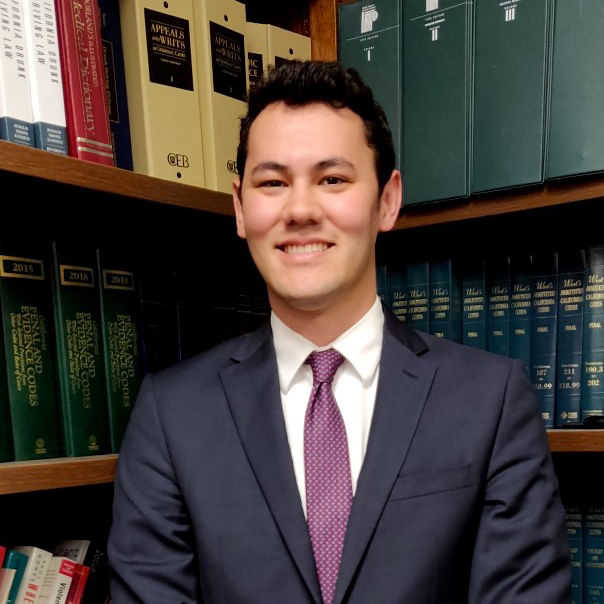Putting Defense Skills to Practice with Public Defender

Matthew Reminick ’21 is a rising 2L student spending his summer as a legal clerk with the Felony Panel division of the Orange County Public Defender’s Office.
Q: How did you land your summer job?
A: I was scrolling through the Career Development Office’s weekly newsletter, “Need 2 Know” when I saw an opening for the Public Defender’s Office in Orange County. I met with their office during Loyola’s Public Interest Career Day. I applied after several professors who have worked in the field recommended interning at their office for the summer.
Q: What is the most interesting part of your job?
A: The most interesting aspect of my job is working one-on-one with a placement attorney who told me public defenders are a “jack of all trades, but a master of everything.” Every day I work on several different motions for clients who are at various stages in the criminal justice system. At the same time, I could be writing a motion to have a case dismissed for someone who was just arrested, or be writing a motion asking for relief for someone who's been in prison over 20 years. Every public defender in the office is skilled beyond the courtroom, from writing pre-trial motions, interacting with clients and judges, and negotiating deals with the District Attorney’s Office for the client's best interest.
Q: What has been your most challenging assignment?
A: Each assignment has posed its own challenge. The chaotic nature of the Public Defender’s Office requires me to submit my memos in a timely fashion and quickly prepare myself to move on to the next assignment. On one occasion, the D.A. dismissed the charges on a case I had been working on for weeks. Though it was exciting to have a client released from custody, it also meant I had to immediately shift my focus to the next case with the same tenacity and passion.
Q: What new legal skills have you acquired during your summer job?
A: LMU Loyola Law School has done an excellent job of preparing my legal writing skills. Now working as a legal clerk, I have learned how to adjust my writing style and content to fit the needs of whoever is reading my work. Even though I can write a lengthy, in-depth legal brief on an entire issue, my placement attorney may only need one or two relevant rules summarized on a single page. On the other hand, motions to judges may require a longer brief to help explain why the case law is favorable to our client.
Q: What bit of legal knowledge have you been able to display?
A: Because Loyola allows first-year students to pick an elective in the spring semester, I was able to enroll in Criminal Adjudicative Procedure. During the course, I learned how the criminal justice system operates and familiarized myself with the common terminology used in the criminal law field. As a result, I could immediately provide assistance without needing explanations or asking about the shorthand lingo attorneys use.
Q: How has Loyola helped you map your career path?
A: Loyola’s Career Development Office (CDO) is always sending out emails regarding jobs for all fields of law. I have talked to various Loyola alumni, notably through the Public Interest Law Foundation, who have given me invaluable advice on how to navigate law school, pursue a career in criminal defense and prepare for post-graduate life. The CDO is dedicated to helping students succeed in law school and in their careers. They are more than willing to put students in touch with the relevant people to get them there.